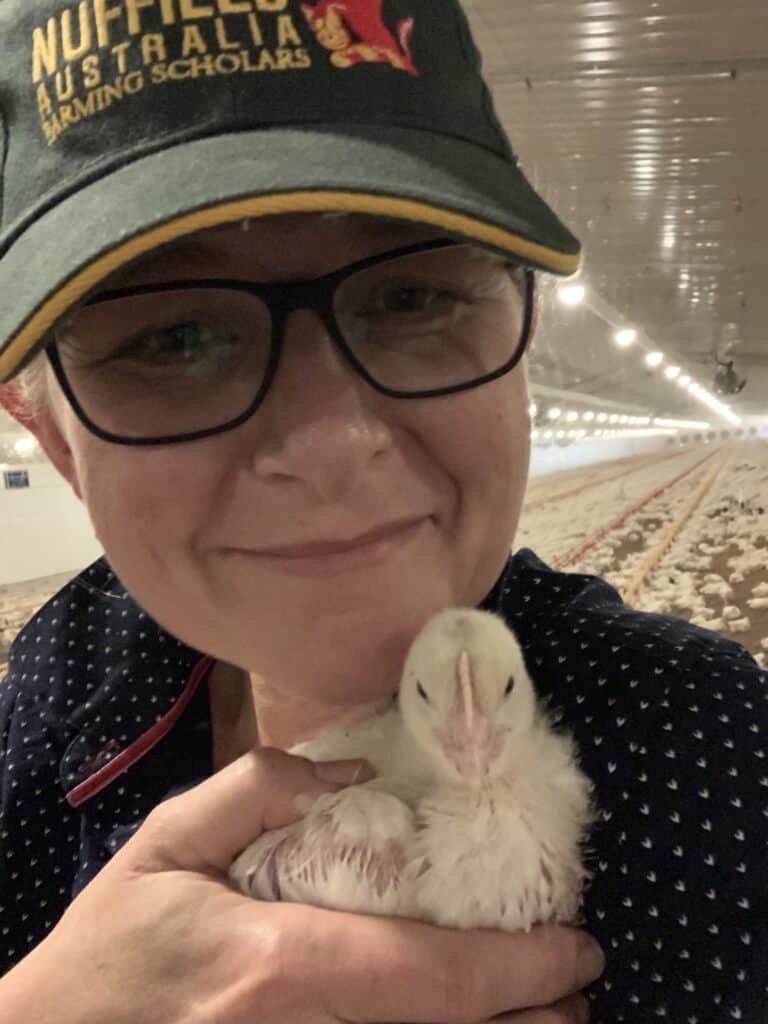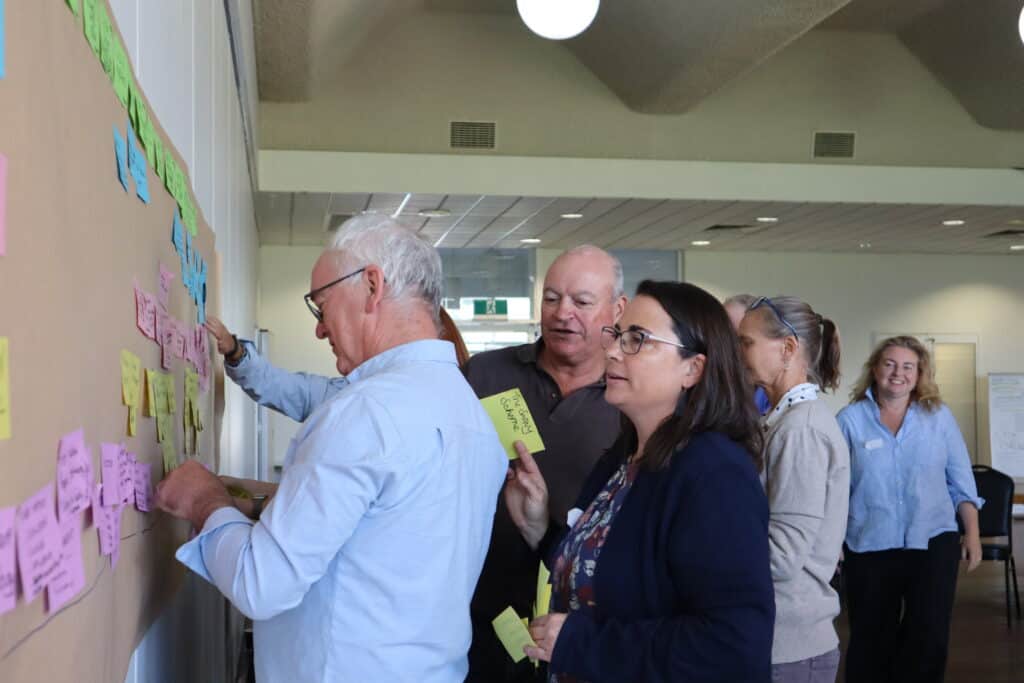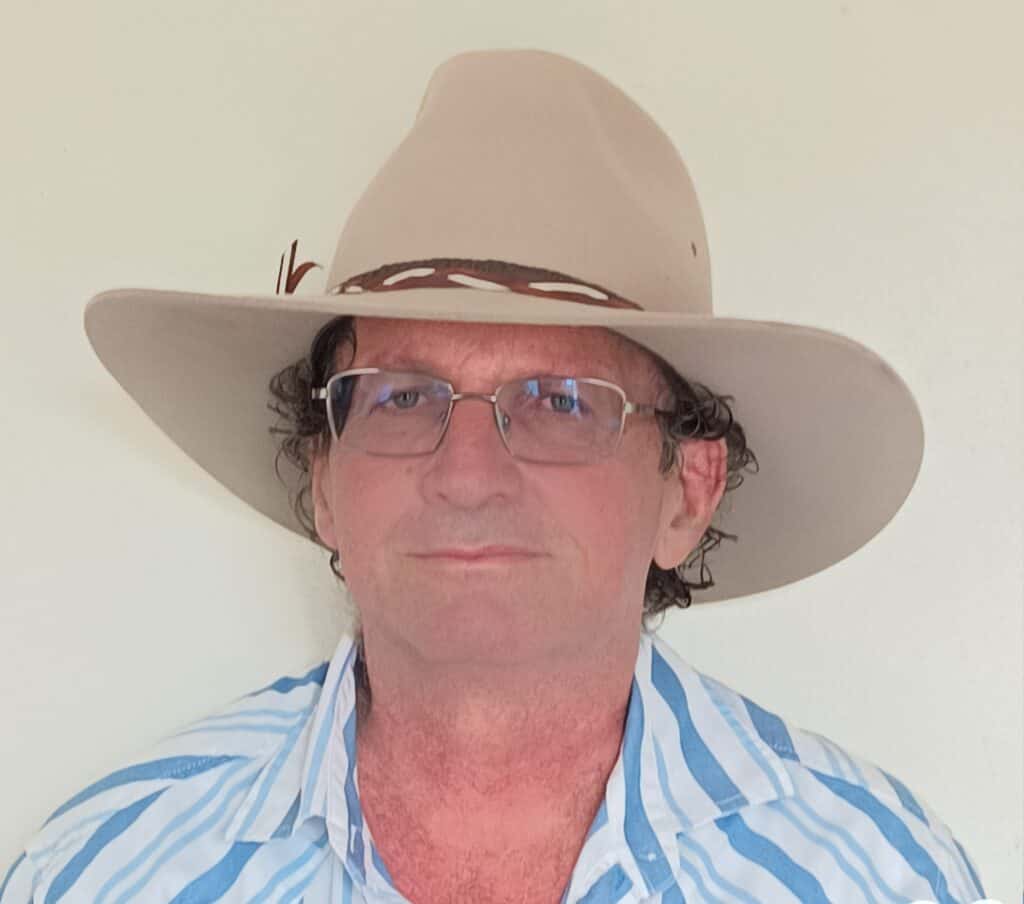Wayne Collier found his way from suburban Melbourne and supermarket shifts into agriculture and the heart of rural Australia.
It’s part of what gives the CEO of LiveCorp such a well-rounded vantage point.
“I came into ag not necessarily by design. I was interested in natural resource management and in primary production. I went back to uni and studied law after working in supermarkets for a while, then got into the Commonwealth Department of Agriculture graduate program in Canberra.”
After spending a number of years developing wheat marketing policies, Wayne headed back to Victoria and worked with the state’s agriculture department on livestock industry policy. From there he joined LiveCorp, later succeeding colleague and mentor Sam Brown as CEO in 2021.
His appointment to lead the service and research body for the Australian live export industry came close on the heels of completing the Australian Agricultural Leadership Program (AALP).
“I don’t think it was entirely a coincidence,” Wayne laughs. “A choice was made to invest in me. LiveCorp hadn’t had anyone through the AALP before, and it was a great way to experience something that went beyond management training. It was a step outside of what I was doing.”
As a leader with “a collaborative, empathetic,” approach, Wayne found in the AALP an opportunity to slow right down and reflect on his own and others’ natural engagement styles.
Time to reflect
“One of the important things from the AALP is the benefit of being taken out of the noise of your day-to-day to more objectively look at what you’re learning. It helps to be exposed to different profiles and personalities and apply an intentionality to leadership. It allowed me to take a more adaptive approach. I tend to think more now about what I need to bring to a situation and what my team needs from me. It’s a useful thing in communicating with people about differences.”
Different perspectives and opinions have been a definitive part of Wayne’s years of leadership in the live export space, having joined LiveCorp just 12 months after the controversial 2011 live export ban.
“I started a year after the Indonesia live cattle export ban, when they were rolling out the Exporter Supply Chain Assurance System (ESCAS),” Wayne recalls.
“I’ve worked in a lot of industries but have never seen one embrace change as much as live exports. There are constant changes in regulation to adapt to, and there have been huge advances over the last decade.”
In more recent challenges, the industry is facing the proposed phase-out of live sheep exports by sea, with the Government’s consultation process currently underway on the future of the $85m a year industry.
“We are a research and development corporation, so we’re apolitical. On an issue like this, the approach is to come at it constructively. We’re not here to comment on the proposed policy, we’re here to provide facts and evidence and support the industry in its current operations,” he says.
The advantage of insight
In working with the needs of different stakeholders, Wayne has found his own broad experience working inside and outside of government has been an asset.
“It’s been interesting having been involved in the three different parts of the equation – commonwealth and state governments as well as industry bodies working with commercial parties. Even the overnight supermarket shifts stacking apples teach you about how many people play a role in our produce supply chains,” Wayne says.
“Engaging with government you want to feel heard from the commercial and industry side. My experience has definitely given me an understanding of the importance of building good relationships where you can have constructive discussions that create solutions to achieve the best results. Working for government and industry has shown me it’s not meant to be an adversarial system – and it works best when it isn’t.”
His time working with Australia’s export partners has given Wayne a passion for seeing live export’s story communicated well.
“I’ve been lucky to travel so much working with our overseas trading partners. One thing that sticks out is how much of a positive impact the trade has on communities in our markets. The industry’s relationship with people there is supported by investment, knowledge-sharing and training. This has made a huge difference to performance over the years,” he says.
“We tend to underestimate capacity and professionalism overseas, but there are amazing dairies in China and feedlots in Indonesia that rival Australia’s. It’s a key part of live export’s story, which is something I’m always working to tell well. We’ve seen huge progress in understanding and support for our industry over the past decade.”
In his 2021 AALP cohort, Wayne found further benefit in knowledge-sharing.
“The diversity among us didn’t come down to which sector or industry we were from, it came down to our unique contexts. You get the best outcomes when you bring a range of experiences together and can learn from that,” he says.
“Leadership is not ever something you perfect – we’re all constantly working on it. Knowing there’s that AALP network that I’m now part of is a great support, as is the LiveCorp Board and management team.”
Investing in leaders key for a thriving industry
As Wayne works in the “absorbing” role as CEO of LiveCorp and continues supporting rural producers and communities, the “pause and reflect” lessons from the AALP are serving him well.
“I’m finding as I go that there is no cookie-cutter approach to being CEO. There is no perfect model. You have to listen to a lot of people and perspectives and learn constantly. You have to choose how you want to manage things. The AALP taught me how to slow it down, and I still try to do this,” he says.
As he looks ahead, Wayne sees good people as key for the live export industry.
“We have to be adaptive. At the moment we are in a downturn – lots of rain means producers hang on to cattle and exports slow up. Drought means exports and processing speed up, but whatever the market, our key tasks are keeping on track with animal welfare, market access, and management of exotic diseases.
“Agricultural industries understand how invaluable it is to build capacity. I think it’s important that we have things like the Livestock Exporter Young Achiever of the Year Award, sponsored by Nutrien Ag Solutions. Winners go on the Foundation’s TRAIL emerging leaders’ program, and that’s a key part of keeping that next generation coming through and providing them with leadership development opportunities,” he says.
“That’s the future.”








